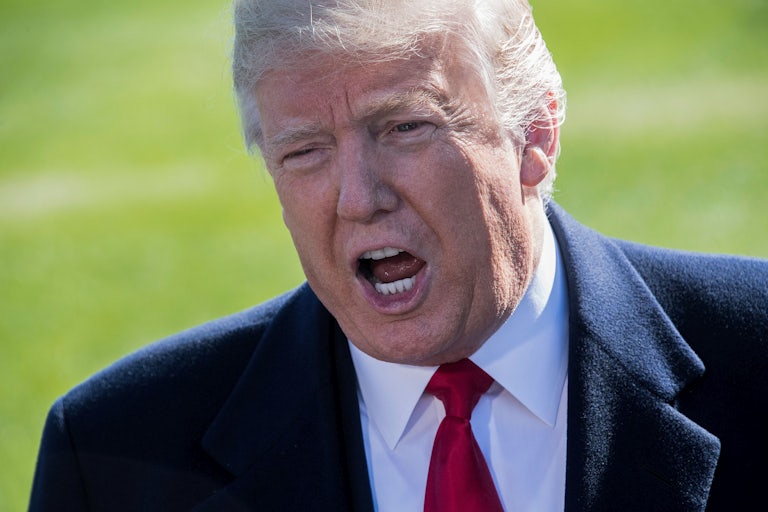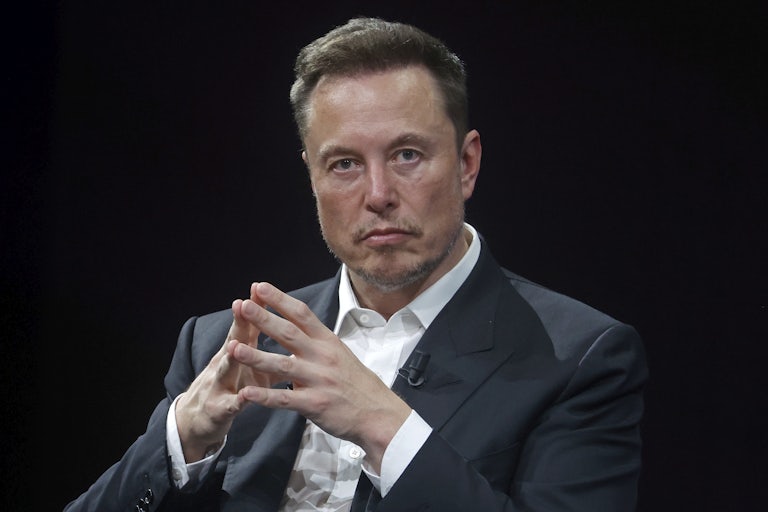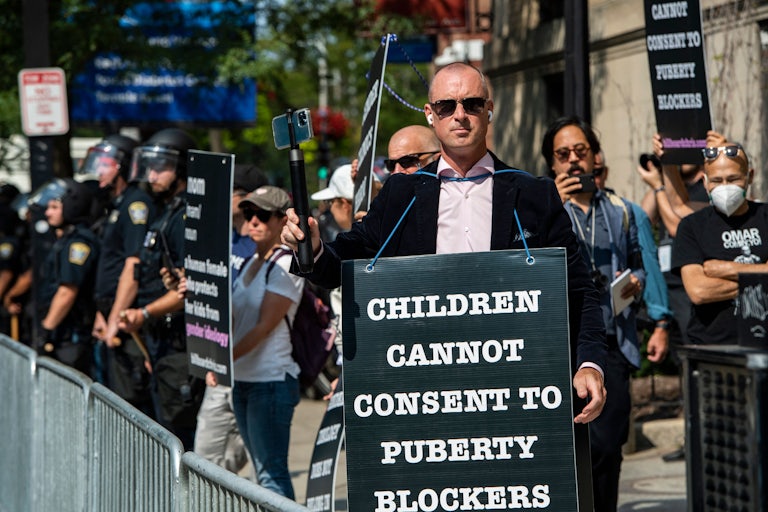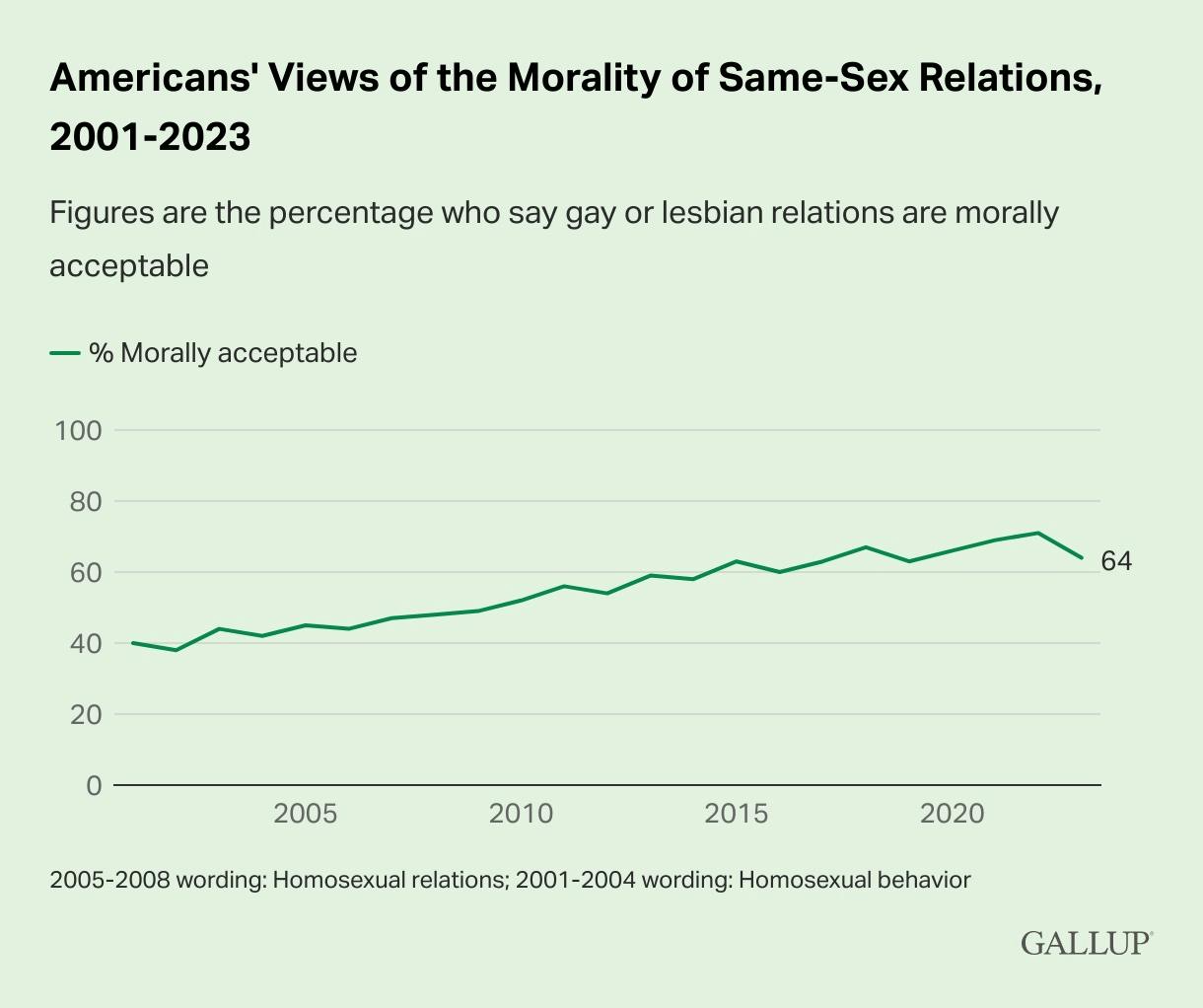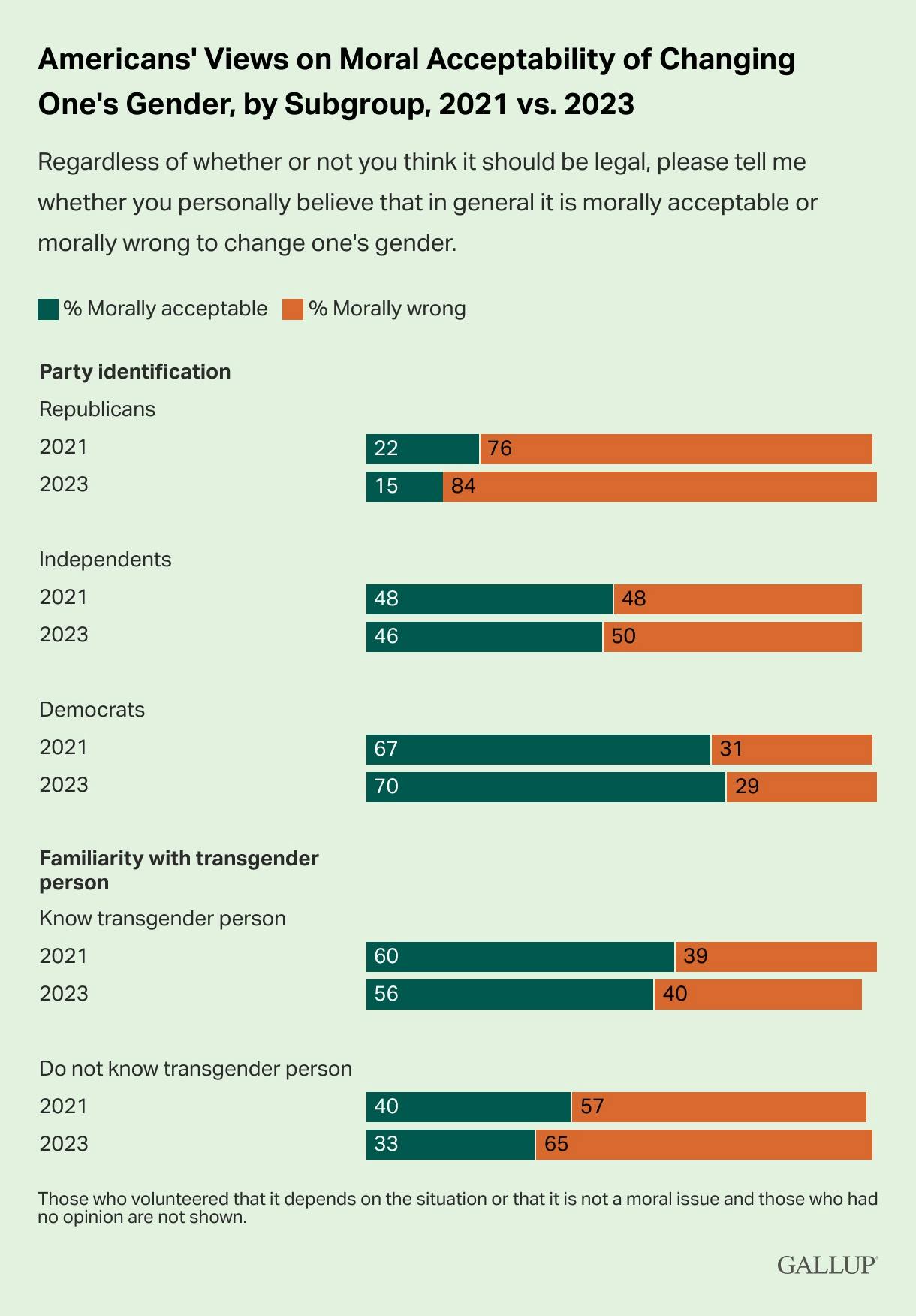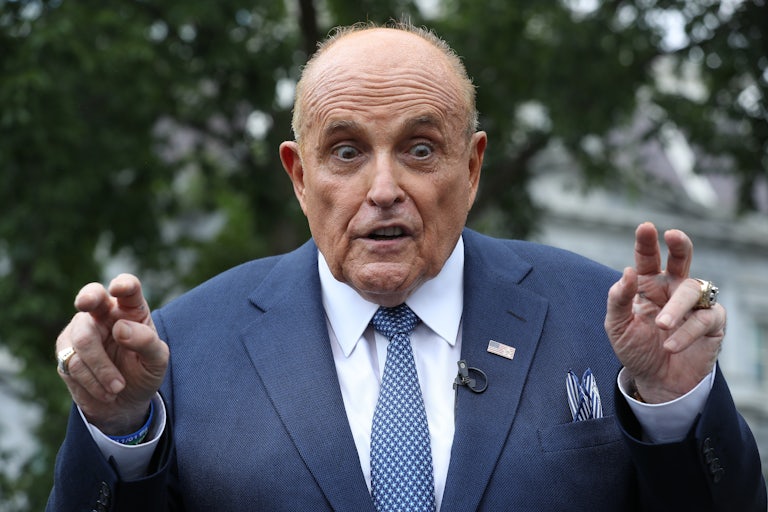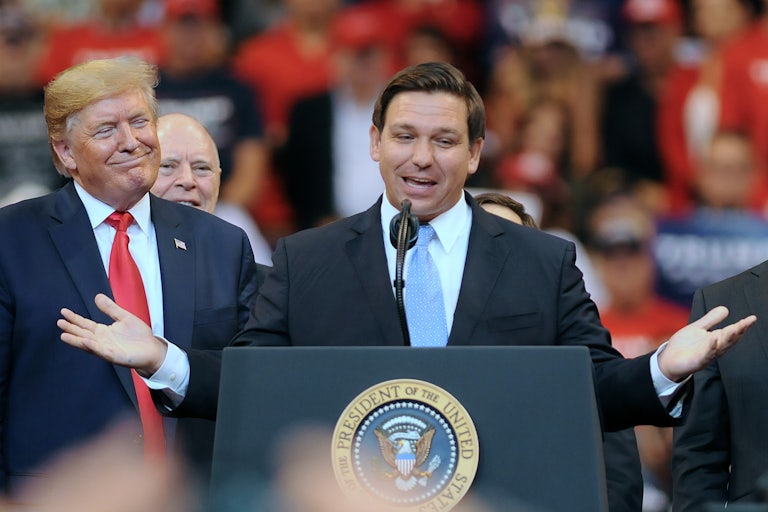There Is No Democrat’s Case for Ron DeSantis
A Orlando Sentinel op-ed falls into familiar traps in making the case for Florida’s governor.
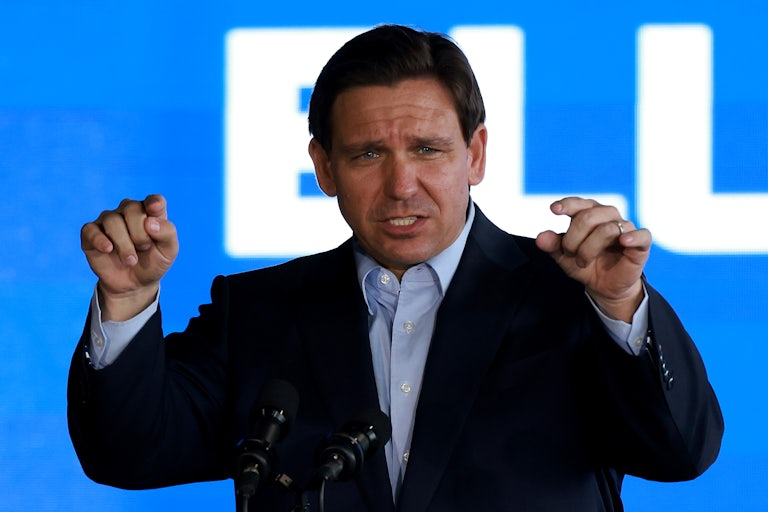
The case against Ron DeSantis from a Democrat’s perspective is straightforward and uncomplicated. For one thing, he’s a Republican. And not just any Republican: DeSantis has been one of the most odious and destructive governors in America since January 2019. He has been a vocal opponent not just of efforts to end the Covid-19 pandemic but of the vaccine that did more to control it than anything else; his anti-vaccine advocacy has also spurred on anti-vaccine activists’ assault on safe, protective measures to control diseases like mumps and polio. He has relentlessly attacked his state’s LGBTQ population, signing draconian bills into law that aid the false, dangerous idea that these people are “groomers.” His efforts in Florida have practically single-handedly brought back book banning to America, an extremely troubling development. On top of that, he is, on most issues, a bog-standard Republican: He wants to cut benefits for the poor and pass massive tax cuts for the rich. He is also, it almost goes without mentioning at this point, grotesque and charismaless, and a phenomenally unappealing figure. He has no juice.
Writing in The Orlando Sentinel on Monday, William Cooper—a Democrat and author of Stress Test: How Donald Trump Threatens American Democracy, a book with one of the most non–[citation needed] titles in the history of American publishing—made the case that none of that actually matters because DeSantis went to Harvard and Yale. Here’s Cooper:
But unlike Biden and Trump, DeSantis passes the litmus test. He’s very competent. A Yale- and Harvard-educated lawyer, DeSantis served in the Navy (including on a tour in Iraq) before entering Congress and then becoming Florida’s governor. And he’s effectively achieved his objectives in Florida—regarding both politics and policy.
DeSantis’ competence matters. Why? Because the most important quality to have in a U.S. president is competence. The biggest questions facing the country do not fall comfortably along some left-right axis but instead require prudent and empirically effective leadership to address. How should we approach our global rivalry with China? How should we regulate artificial intelligence? How should we participate in an international economy complicated by dysfunction and violence around the world? And so on.…
A simple question establishes the point. Which candidate would be better at the helm in a global crisis: an 80-year-old who can’t walk straight (Joe Biden); a 76-year-old with the emotional intelligence of a 10-year-old (Donald Trump); or a 44-year-old Harvard-law-trained Navy vet who skillfully runs his home state (Ron DeSantis)?
This is an argument that reduces politics to pure aesthetics—there is no mention of anything DeSantis could do that affects people’s lives in any way. Cooper produces no evidence that DeSantis is “skillfully” managing his home state; he addresses none of the policies that DeSantis has pursued in Florida. The office of the presidency is reduced to an almost symbolic one in which DeSantis is effective simply because he fits some sort of preordained model of what a president should look like (and also because, unlike Trump and Biden, he is not old). Similarly, there is no mention that Biden has skillfully managed an international crisis—Russia’s invasion of Ukraine. Ron DeSantis has spent most of the last two years losing a war against Disney.
It gets worse:
Indeed, domestic issues matter less and less the more interconnected the world gets—and it’s getting exponentially more interconnected as time marches on. This, in turn, decreases the relevance of a president’s political party and increases the importance of a president’s competence. Far better to get the culture wars wrong but get China right than vice versa. Same with taxation: Better to tilt the code a little more toward the rich if it means we also get smarter regulations protecting humanity from the downside of artificial intelligence. Appoint conservative judges all day long if it means America’s international effectiveness and leadership improves. America’s domestic squabbles just don’t mean as much as they used to. And it’s a sign of our national decadence and complacency that our political focus is nonetheless still insular and myopic. The world is a dangerous and complicated place and the president of the United States should be—above all else—very good at dealing with global challenges.
Setting aside the myopia of this argument—issues that don’t interest Cooper, like gay rights, are reduced to baubles to be cast aside so that we can “regulate artificial intelligence,” whatever he means by that—none of this actually applies to DeSantis. There is no evidence that he could manage foreign affairs any better than Biden or, for that matter, Trump. There is significant evidence that he would arguably make lives for vulnerable people—LGBTQ people and poor people, in particular—worse than Trump.
DeSantis’s appeal has largely always been this abstract. He does seem more normal than Trump. There are no tweetstorms at three in the morning. There are no indictments about mishandling classified information. And yet, despite the fact that he’s young and possesses his faculties, DeSantis remains a damaging political force. All you have to do is look at what he’s actually doing and saying.
